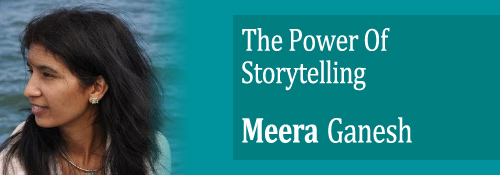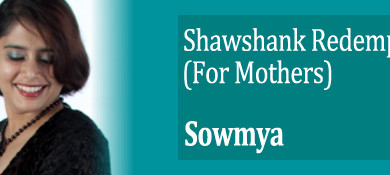The Power Of Storytelling
Have you ever read/told a story to your child? Whether you are a literate or an illiterate parent, I’m sure there has been one night in the life of your child(ren) when you’ve lovingly run your hands through their hair, had them snuggle close to you and then gone on to tell them about a brave prince, a beautiful princess, a bashful monkey or a playful rabbit.
The power of storytelling is such that it is the one thing children remember long after they have grown up. Stories that our grandparents told us, books that our parents read to us. Story time has the ability to hold time still for a moment, to cocoon the child in the warm blanket of love and security. It even has the ability to make a sick little one feel temporarily better. Admit it, having your child fall asleep in the middle of story time, their gentle breathing and their warm body nestled close to you has caused your heart to turn over on more than one occasion. Which one of us hasn’t wanted time to stand still in that moment, hasn’t wanted our children to stay that age forever.
Stories also serve as a great way to teach children moral values and right from wrong. “The Boy that cried Wolf” or any number of Jataka tales or stories from the Panchatantra have offered lessons like Honesty is the Best Policy, Pride Goes Before a Fall, Handsome is as Handsome does.
What happens though when the little ones grow up – when they discover the tooth fairy and Santa Claus are tales we tell them. When they start to get jaded about fairy tales, when communication with them becomes more and more transactional consisting of questions like “What time’s your practice?” “When should I drop you off at the sleepover?” “Do you want pizza or Chinese for dinner?” “Is your homework done?”
Increasingly as our children turn into teens, communication lessens and in this age of electronics, you are a lucky parent if you receive more than a grunt or a “mm-hmmm” in response.
Surprisingly, storytelling can keep the lines of communication open even as children become more and more independent and develop a personality of their own and start to establish their own identity. No, I’m not talking about fairy tales. I’m talking about stories from your own life.
Growing up, my father’s youngest brother had a penchant for Hindi films, especially ones starring Amitabh Bachchan. For years, during summer vacations he’d enthrall me and my cousins with stories of the latest blockbuster he’d watched in the theater. He would detail richly the costumes worn, the cars driven, the dialogs from the movies and we’d hang on to his every word. Later, if we did get a chance to watch one of the movies he’d talked about, we’d compare to see if he got all the details right. As an eight, nine, ten year old, those were the stories that absorbed us.
As a teenager I was fascinated by war, especially the first and second World Wars. I had a very romantic notion of the wars themselves, all those brave young men in uniform giving up their lives for principles. It excited me to no end to find out my paternal grandfather had a part to play in the 2nd World War. He was a part of Military Engineering Services and was allocated the task of building bridges. When I shared with him my notions of war, he guffawed out loud and said “All war ever did was give me malaria and dysentery.” He then went on to detail his experiences from the war – of hiding in trenches, not having enough to eat, marching in the rains with all your gear, being eaten alive by mosquitoes. He concluded by saying “Wars are always started by men who don’t have to be in the trenches themselves. The rest of us pay the price.” I came away all my romantic notions shattered, but with even greater respect for the sacrifices that people in the armed forces make for our benefit.
My maternal grandfather, on the other hand, had been a part of India’s freedom movement. Once, as a rebellious teenager, I said something to the effect of we’d probably have been better off under British rule, given the mess we’ve made of our political system. He flew into a rage and out came the story of how he was part of a group of young 17-year-olds who wanted to unfurl India’s flag at the local police station. Of course the group was caught, beaten and had to spend a night in jail. “You have the freedom of criticising your government, that’s what all those lathis I took earned you. Don’t you dare go around disrespecting this hard earned freedom.” he thundered.
At home, my mother would constantly talk to us about how she grew up, my grandparents’ struggles to raise five children on a single paycheck. She spoke about one of her sisters going to work as a teacher and getting her bachelor’s degree at a night college in a small town in Bihar just so their brother’s fees at the IIT could be paid (a mere Rs.60/month in those days).
Did me and my brother always pay 100% attention when we were being told these stories? No, probably not, especially during our teen years. I’d like to tell you though that those stories left a mark. They molded and shaped who we’ve become – our spending habits, our relationships, my parenting skills – all are to some extent influenced by some of those stories my parents, grandparents, uncles and aunts shared with us.
Today, when I drive the daughter to school, classes, pretty much anywhere, I share stories from my childhood. Some of them are funny, some, not so much. One evening I had the opportunity to share with the daughter and 2 of her close friends stories of all my accidents growing up. I’m a naturally clumsy person and have a lot of tales to share of walking into walls, stubbing my toe etc…what do you know, that became one of the kids’ favorite evenings. I still get requests from them to share those stories again and again, probably because as they morph into teens, these girls realize that they’re not as graceful as they’d like to be. It’s probably nice to know that one of the adults in their life who seemingly has it together was a klutz not too long ago.
Another time I was visiting friends in California and got into my story mode. I went on and on for what seemed like hours. As the evening wound down, I apologized to my friends for having hogged the conversation and they said they’d have been happy to let me go on for a few more hours. It was the first time in months that their high school aged daughter had sat through dinner instead of taking her plate and eating dinner in her room with her phone. They offered to have me over for dinner the next night if I promised them a repeat performance. 🙂
Here’s what I have learned in the very very few years that I have been a parent. I want a way to communicate with my child as she grows older. I can’t always preach morals or yell at her to be more responsible. If, once in a while, my experiences as a clumsy, even foolish, youngster enable her to see me in a different light, give her an opportunity to laugh at me and in the process ensure I’m spending just a little bit more time with her, I’ll take it.
Just like the baby years and the toddler years, these years too will be gone quickly. I’d like to keep her in the same room, if not on my lap for just a little while longer.
I am mom to a quickly growing 11 year old. I have lived abroad for over 15 years and I struggle daily with the challenges that parenting and straddling 2 different cultures throws at me. I am an avid reader, a huge fan of the movies (Bollywood, especially) and a somewhat sporadic writer. I blog at MM’s musings.

